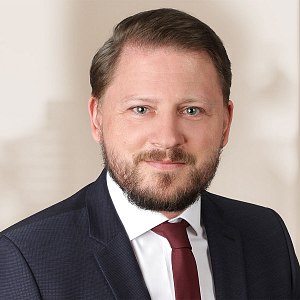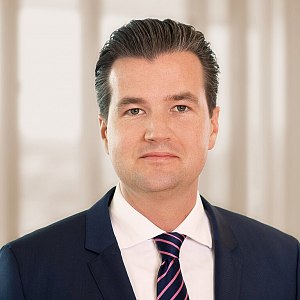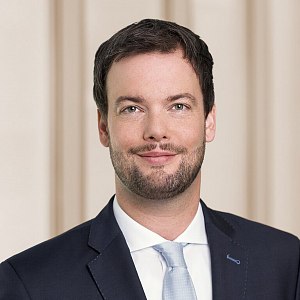In certain cases, company reorganisations under the StaRUG are accompanied by a so-called restructuring practitioner. This article provides an overview of the main rules on restructuring practitioners.
 Source: Scott Graham on unsplash.com
Source: Scott Graham on unsplash.comIn principle, under the new Act on the Stabilisation and Restructuring Framework for Businesses (StaRUG), the debtor is to take responsibility for the reorganisation. The instruments of the StaRUG are procedural aids for what is essentially an out-of-court restructuring process. An exception to the principle of personal responsibility is the appointment of the so-called restructuring practitioners.
Content

- When is a restructuring officer practitioner pursuant to StaRUG?
- What is an optional restructuring practitioner?
- What are the duties and tasks of the restructuring practitioner?
- What requirements must a restructuring practitioner fulfil?
- What are the costs of a restructuring practitioner?
- What is the difference between a restructuring practitioner and a restructuring facilitator?
1. When is a restructuring practitioner appointed pursuant to StaRUG?
The restructuring procedure is a debtor-autonomous procedure, which means that the debtor retains control over his company and manages the restructuring plan procedure himself. As in the self-administration proceedings, he remains authorised to dispose of and manage his assets.
However, in some special cases regulated by law and upon request, a so-called restructuring practitioner can be appointed. Intended as an independent control and mediation body, the restructuring practitioner is appointed ex officio by the restructuring court in the following cases:
- if the rights of consumers or medium, small and micro enterprises are affected (section 73 (1) no. 1 StaRUG);
- if a moratorium is applied for (section 73(1) no. 2 StaRUG);
- in connection with an agreement on plan monitoring (section 73(1)(3) StaRUG);
- if it is foreseeable that a submitted plan can only be achieved against the resistance of holders of restructuring claims or rights to separate satisfaction (section 73 (2) StaRUG).
Within the framework of the necessary appointment by the court, the restructuring practitioner thus serves primarily to protect creditor interests and to monitor the debtor. The integrity and efficiency of the restructuring process are to be ensured by a third, neutral person as a mediating and coordinating body.
The restructuring court is also authorised to appoint a restructuring practitioner for its own support and relief and to entrust him with expert tasks (section 73 (3) StaRUG).
2. What is an optional restructuring practitioner?
In addition to the necessary appointment, an optional restructuring practitioner may be appointed at the request of the debtor or 25% of the creditors (section 77 (1) StaRUG).
Why should the parties voluntarily make use of such a mandate holder, especially since its costs are to be borne by the creditors themselves in the event of a creditor application (section 77 p. 2 StaRUG)?
Like the necessary mandate holder, the optional restructuring practitioner primarily supports the debtor and the creditors in the preparation and negotiation of the restructuring plan. However, the purpose of the optional restructuring practitioner goes beyond that of the ex officio appointed one:
- In particular, he has the task of balancing information imbalances between the parties involved and mediating between the different interest groups.
- Furthermore, the implementation of an experienced expert can accelerate the restructuring process as a whole.
Since the appointment is made on a voluntary basis, the scope of duties of the optional practitioner is determined by the applicant(s) (section 77(2) StaRUG).
3. What are the duties and tasks of the restructuring practitioner?
The restructuring practitioner is under the supervision of the court appointing him. The court may demand information from him/her at any time and dismiss him/her for good cause (section 75 (1), (2) StaRUG).
He must perform his duties impartially and with due care and diligence. If he culpably fails to do so, he is liable to pay damages to the affected parties (section 75 (4) StaRUG).
The restructuring practitioner is obliged to notify the court if the restructuring becomes inadmissible and must therefore be set aside (section 76 (1) StaRUG).
This is the case, for example, if the debtor becomes insolvent.
The further assignment of tasks is largely left to the restructuring court. It may, for example, authorise the practitioner to
- review the debtor's economic situation and monitor its management (section 76(2)(2)(a) StaRUG); and
- to require the debtor to accept incoming funds only from him and to make payments only from him (section 76 (2) no. 2 lit. b) StaRUG).
If a stabilisation order has been issued in favour of the debtor, the restructuring practitioner shall continuously investigate whether the conditions for this order still exist (section 76 (3) no. 1 StaRUG).
The debtor is obliged to support the restructuring practitioner in the performance of his duties and, in particular, to provide him with information and allow him to inspect business books and papers (section 76 (5) StaRUG).
4. What requirements must a restructuring practitioner fulfil?
The law is broadly defined with regard to the question of the requirement profile of a restructuring practitioner:
Accordingly, "[...] a tax advisor, auditor or lawyer experienced in restructuring and insolvency matters who is suitable for the individual case or another natural person with comparable qualifications and who is independent of the creditors and the debtor [...] shall be appointed".
§ Section 74 (1) StaRUG
Candidates who meet the described requirements of expertise, independence and impartiality may also be proposed by the debtor or by 25% of the restructuring creditors.
5. What are the costs of a restructuring practitioner?
According to the StaRUG, the restructuring practitioner is remunerated on the basis of appropriate hourly rates (section 81 (1) StaRUG), whereby the size of the enterprise, the type and extent of the debtor's economic difficulties and the qualification of the practitioner and his employees are to be taken into account in the assessment.
The standard remuneration is to be up to EUR 350 per hour for the restructuring practitioner himself and up to EUR 200 per hour for qualified employees.
These rates may be exceeded in exceptional cases, in particular if:
- all parties involved agree on the remuneration (section 83 (1) sentence 1 no. 1 StaRUG);
- no suitable person otherwise declares his or her willingness to assume the office (section 83(1) sentence 1 no. 2 StaRUG);
- or the case is particularly complex and the tasks are more similar to those of a custodian (Sachwalter) in debtor-in-possession insolvency proceedings (section 83 (1) sentence 1 no. 3 StaRUG).
Practice note by Dr. Jakob Bünemann:
In view of the extensive tasks of the restructuring practitioner on the one hand (e.g. examination of claims and securities, examination of rights to separate satisfaction and share and membership rights of the parties affected by the plan, etc.) and his liability towards the parties affected as provided for in section 75 (4) StaRUG on the other hand, it can be assumed that the practice will make use of the deviating remuneration in larger and more complex restructuring cases.
6. What is the difference between a restructuring practitioner and a restructuring facilitator (Sanierungsmediator)?
Restructuring facilitation is intended to support economically or financially distressed companies in reaching an agreement with their creditors and can already take place before preventive restructuring proceedings are initiated. However, measures with a coercive effect against the creditors cannot be obtained within this framework.
The restructuring facilitator is appointed for a maximum of six months and mediates between debtors and creditors during this time in order to resolve economic and financial difficulties. If the instruments of the StaRUG are to be applied thereafter, a conversion of the role of the restructuring facilitator to restructuring practitioner is possible.

Dr. Jakob Bünemann
Author of this article

Dr. Jakob Bünemann is an attorney at GÖRG's Cologne office. He advises nationally and internationally active companies in all areas of insolvency law, restructuring and crisis-related corporate law.















